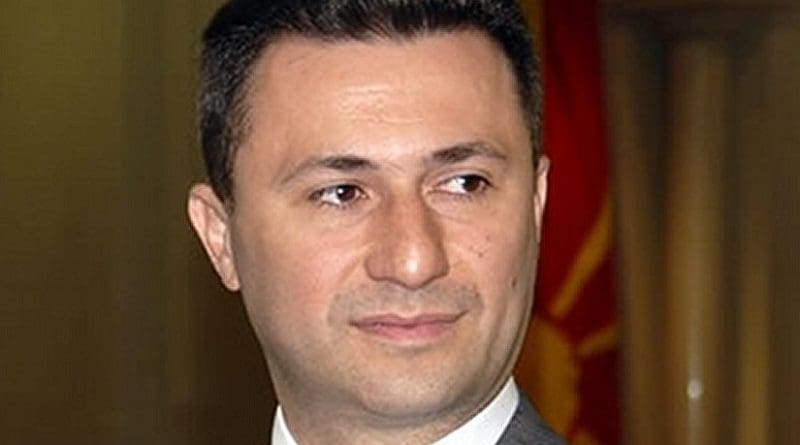Macedonia: Gruevski Invited To Form Government
By Sinisa Jakov Marusic
Macedonian President Gjorge Ivanov on Monday entrusted Nikola Gruevski with a fresh mandate to form a new government after his VMRO DPMNE party narrowly won the December 11 elections.
He has 20 days to secure a majority of 61 in the 120-seat parliament and present a new team to parliament, or return the mandate.
The talks on a new government are expected to be tough for Gruevski whose party won 51 seats in the elections, only two more than the main opposition Social Democrats, SDSM.
To obtain a majority he will have to reach terms with one or more of the ethnic Albanian parties that jointly hold 20 seats.
On Saturday, they raised the bar for their participation in a coalition government after they signed a joint declaration on their agreed terms for joining any new government.
The declaration contained seven points, without concrete deadlines for their fulfillment, but containing ideas that they claim would ensure complete equality between the Macedonian majority and the Albanian minority – about a quarter of the population.
They centre on the rule of law and justice, economic equality, speedier EU and NATO integration and better neighbourly relations.
Among other things, the Albanian parties want the Albanian language made official over the entire territory of the country, not only in areas where they live in significant numbers.
They also want talks on changing the country’s flag and anthem to reflect the Albanian component.
They also want Macedonia to sign a declaration that condemns “the genocide against Albanians” conducted between 1912 and 1956, which covers the period from the first Balkan War, when Serbia annexed Macedonia, to the early years of Communist Yugoslavia.
Gruevski would also be asked to agree to the prolongation of the work of the Special Prosecution, SJO, which was formed in 2015 as a result of EU-sponsored crisis talks and tasked with investigating high-level crime.
Gruevski and his top party associates have so far been the main subjects of the SJO’s work.
In an interview for the daily Dnevnik at the weekend, Gruevski conveyed his reluctance to go along with the entire Albanian agenda.
“I will try to form a government but not at any cost,” he said adding that if his former Albanian partner in government, the Democratic Union for Integration, DUI, honoured the unwritten principle of aligning with the biggest ethnic Macedonian party in a coalition, he would not have a problem.
However, he added: “If VMRO DPMNE as the winning party is duped by the DUI, no matter the reasons, be assured that VMRO DPMNE will come back in a big way with at least two terms [in power]in a row.”
Should Gruevski fail to form the government, the leader of the opposition SDSM, Zoran Zaev, will be given the task – and will face the same demands from the Albanian parties.
During the elections, Zaev’s less ethnic-based civil platform attracted the votes of many ethnic Albanians who were unhappy about the ten years of Gruevski’s rule and with the Albanian parties that had supported him.
Gruevski accused him of plotting to divide the country along ethnic lines, which he denied.
– See more at: http://www.balkaninsight.com/en/article/gruevski-asked-to-form-macedonian-govt–01-09-2017#sthash.x772oqxR.dpuf

